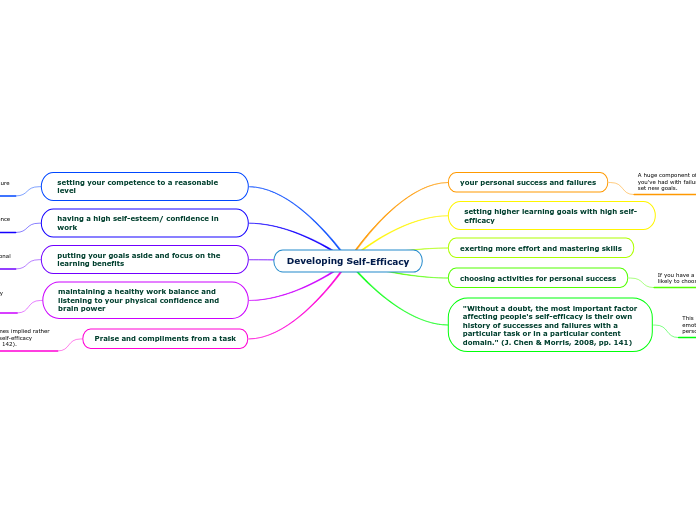Developing Self-Efficacy
your personal success and failures
A huge component of affecting your self-efficacy is the history you've had with failure and success; and to grow, you must set new goals.
setting higher learning goals with high self-efficacy
exerting more effort and mastering skills
choosing activities for personal success
If you have a talent or certain interest of a topic, you are most likely to choose that first to work on/ improve on
"Without a doubt, the most important factor affecting people's self-efficacy is their own history of successes and failures with a particular task or in a particular content domain." (J. Chen & Morris, 2008, pp. 141)
This is interesting because success and failure are also emotions attached to other concepts such as confidence and personal skill.
setting your competence to a reasonable level
setting your work ethic to a reasonable standard to make sure you can attain the goal and grow from it
having a high self-esteem/ confidence in work
choosing to participate in activities to improve your confidence and mastery of the skill
putting your goals aside and focus on the learning benefits
focus on your personal benefit to learning rather than personal gain such as added confidence or mastery
maintaining a healthy work balance and listening to your physical confidence and brain power
you could be working when you are mentally and physically tired, so be sure your state of being is at it's best when performing tasks.
Praise and compliments from a task
"The messages learners receive are sometimes implied rather than directly stated, yet they can influence self-efficacy nonetheless" (Hattie & Timperley, 2007, pp. 142).
